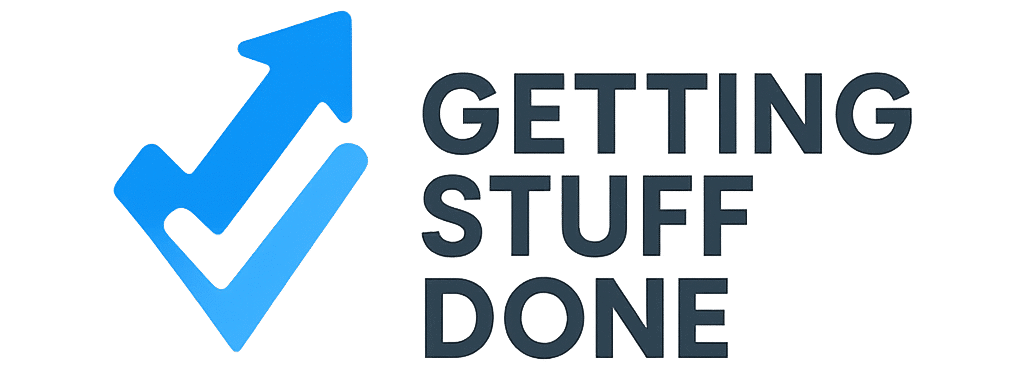So, why is a busy worker a procrastinator? Working hard and being busy leads to getting stuff done, doesn’t it?
Well, yes and no. What if being busy is procrastination in disguise? Let’s explore this a bit and see what we discover that will help us get some “relevant” stuff done.
The Myth of the Busy Worker
“Being busy does not always mean real work. The object of all work is production or accomplishment and to either of these ends there must be forethought, system, planning, intelligence, and honest purpose, as well as perspiration. Seeming to do is not doing.”
Most would agree that Thomas Edison knew how to get stuff done. In fact, he is an excellent role model in combating any form of procrastination.
We see many people always busy doing things but never seem to be satisfied with their results. Many feel that no matter how much they do, it is simply never enough.
The idea that being a busy worker equals production is a myth. It is not necessary at all to be busy to get necessary and relevant things done.
In fact, with the right mindset, doing less accomplishes more.
What is the value generated from our activities? Are our tasks aligned with our strategic goals and producing significant results?
By differentiating between being occupied and being productive, we are able to prioritize goals, effectively use our time, and complete our plans efficiently and effectively. This creates genuine productivity.
Let’s focus on outcomes rather than getting caught up in the hustle and bustle of everyday operations. This will have a dramatic affect on our bottom line.
Focusing on the Relevant Tasks
“Productivity is never an accident. It is always the result of a commitment to excellence, intelligent planning, and focused effort.” — Paul J. Meyr —
This is where planning comes in. All plans change at least a bit based on current conditions and new data, but they provide a relevant starting point.
Clarity is essential when creating our plans. It’s important to recognize what exactly it is that we want to accomplish.
So, what do we want?
Once we are clear on this, we can create a plan that keeps us focused on relevant tasks.
It’s important that this is a heartfelt desire, as this will supply the emotional punch to build the needed momentum toward our goal. When what we desire is meaningful to us, we will only want to do the things necessary to bring it about.
As we explore new territory in our endeavors, we will be presented with new opportunities for growth and advancement. This will require us to expand our comfort zone.
Getting uncomfortable is not something that we crave. That’s why it is essential that we are clear on what we want, and it is heartfelt.
The Busy Worker and the Fear Factor
“I have learned over the years that when one’s mind is made up, this diminishes fear; knowing what must be done does away with fear.” — Rosa Parks —
We often stay busy so that we don’t have to deal with the tasks that we are afraid to do. Even when we realize that this will produce what we desire, we still will resist being vulnerable to criticism and rejection.
The term for the fear of change is “neophobia”. It is basically a psychological reaction comprised of much apprehension and anxiety.
This occurs when we are confronted with new ideas, environments, and situations. This is because we desire what is familiar and stable and not the uncertainty that comes with exploring new horizons.
We are faced with this in both professional and personal settings. This leads to much resistance to embracing innovation and exploring new opportunities.
To overcome this fear, it helps to develop a growth mindset, gradually expose ourselves to new experiences, and keep in mind the benefits gained by change.
We should always consider any resistance a gift in disguise, as it exposes the barriers that have been holding us back. These barriers are our limiting beliefs.
The Lies That We Tell Ourselves
“Honesty is more than not lying. It is truth telling, truth speaking, truth living, and truth loving.”
Our limiting beliefs are the lies that we tell ourselves daily, and they are the root source of all of our difficulties. No need to blame other people or circumstances, as the buck stops within ourselves.
These negative thought patterns are just assumptions we have made about ourselves based on past experiences. Especially when these experiences have been painful or traumatic, we build up defenses against them occurring again.
We have been conditioned by society to play the victim role. This leads to self-doubt as we see the world as a fearful place.
These beliefs manifest in so many ways that affect our careers and relationships. Being a busy worker will not compensate for how we think and feel.
How can we reach our full potential just by being busy when we have chaos occurring within ourselves? Overcoming these limiting beliefs will lead to a much fuller life based on confidence and feelings of harmony and joy.
This requires some cognitive restructuring based on a growth mindset. With enough self-reflection, we can challenge these beliefs and actually recognize how they have been restricting us.
Now, we can replace these lies with empowering beliefs that create resilience and success. As the light bulb within our mind turns on, we are able to see clearly for the first time in many years.
Transforming the Busy Worker
“Transformation is a process, and as life happens, there are tons of ups and downs. It’s a journey of discovery – there are moments on mountaintops and moments in deep valleys of despair.” — Rick Waren —
Any change of mindset is a process that requires commitment and persistence. When we have a burning desire to do so, we will embrace the journey and find meaning in the present moment.
All change occurs right this instant as that is all there is and has ever been. Awakening to this in a practical sense clears our vision of these nagging misperceptions we have acquired.
As I have mentioned in previous articles, this is a process of “undoing” so that we can then allow ourselves to “be”. This produces the type of clarity that we need. There really is nowhere to go and nothing to get because we have it all right now. We are just not aware of it.
Let’s transform the busy worker into the effective and efficient worker. We then spend time on high-priority tasks that create the results we desire.
Letting go of the lies and accepting the truth is ideal but will be resisted because of our current mindset and perceptual view. What we have projected is very real to us, and just like in the “Wizard of Oz”, we need to pull back the curtain to see who really is pulling the strings.
Accepting this on an intellectual level will not do the trick. This is something we need to experience so that the truth makes as much sense to us as the illusion currently does.
So let’s not be a busy worker who is actually procrastinating getting the essential stuff done. Once we break free, we will spend our time wisely and effectively, no matter how much of it we spend.
In Peace & Love within the Light,
Joseph William
P.S. Let’s spend our Time on Meaningful Tasks in an Online Business that Resonates with Who We Truly Are. CLICK HERE for All of the Details.





Balancing work and personal life can be a real challenge, especially when the demands of a busy job seem endless. It’s easy to fall into the trap of always being “on,” which can lead to burnout and decreased productivity in the long run.
Prioritizing tasks, setting boundaries, and making time for rest are crucial to maintaining a sustainable workflow. How do you manage your workload while ensuring you still have time for personal growth and relaxation?
Thanks, Marlinda. After reading Robin Sharma’s book,”The 5 AM Club” I get up early and get all my high priority items done prior to noon and then spend the remainder of the day on family and recreation. This has been for the last 5 years. Prior I was caught up much more with a “busy” schedule. All the Best, Joseph
Great article. Procrastination effects many of us. This offered an interesting way to get around it. I am a procrastinator from time to time and I will try your recommendation and see if it helps.
Thanks for your comments, George.
Great article. Procrastination effects many of us. This offered an interesting way to get around it. I am a procrastinator from time to time and I will try your recommendation and see if it helps. I know that this is an area that I need to improve on as I am sure others do as well.
Thanks, George. Appreciate your thoughts.
Hi, reading your piece reminded me of those brief and rare times in my working life when I achieved that level of reflection necessary to, grab myself by the lapels, as it were and force myself out of my comfort zone. More often than not this was because in reality I may not have had much choice. It was a question of having to embrace the new reality or be made redundant or fail to get the new contract with a client that I desperately needed to stay afloat. I do think though our natural tendency is to slip back and often that is slipping back into comfortable busy work, that most likely isn’t what we really need to be doing to achieve our goals. I do think though that once we have had that experience of deliberately moving outside our comfort zone and successfully pushed ourselves through a necessary transformation, it becomes easier to repeat the experience. Cheers, Andy
Thanks, Andy, for sharing your thoughts on this. Much appreciated, Joseph
Hi Joseph,
It’s funny I have came across your article on being a “busy worker” and what it really means.
I am currently reading a book called “10x is easier than 2x” written by Dan Sullivan and Dr. Benjamin Hardy.
One of the main messages is to become 10x in your productivity, impact and in achieving your goals then you don’t need to work more, harder and and become busier. You need to virtually do the opposite and work smarter, more focussed, balanced and set smarter goals for yourself.
It is a great book and has a very similar message to the one in your article. If you haven’t read it already then I highly recommend it to you as I think you would enjoy it and find it helpful.
Thank you for sharing another great article and keep up the amazing work you do.
All the best,
Tom
Thanks for sharing your insights and this book, Tom. Very much appreciated. Best, Joseph